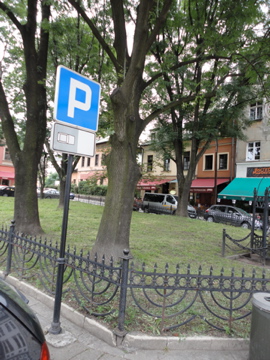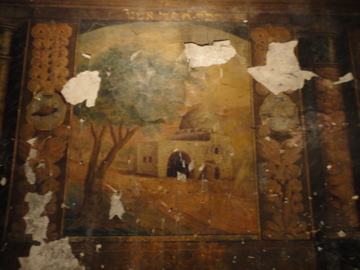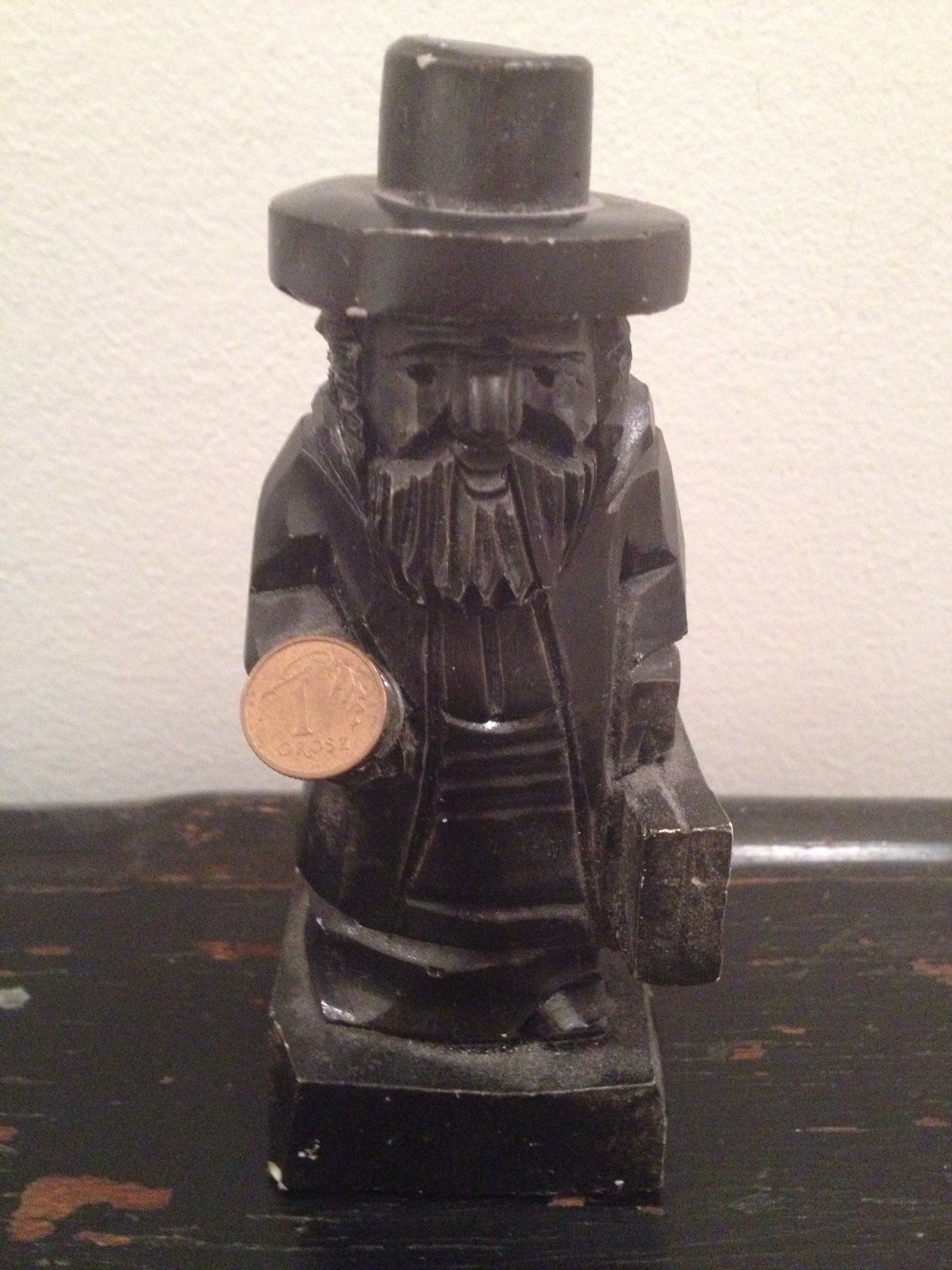
It's hard to make sense of Poland's ban on the Jewish ritual slaughter of animals known as shechita. Earlier this week, Israeli President Shimon Peres called on Polish President Bronislaw Komorowski to help overturn the ban, Israeli Army reported. He, in turn, said he would help. The ban, which went into effect last January, requires that animals be stunned for slaughter because it was more humanitarian than kosher practices. Jewish groups protested. But last month, on the eve of Tisha B'Av, the most somber of the Jewish holidays, a day that marks the destruction of the holy Temple in Jerusalem and also is used for Holocaust remembrance, Polish Parliament voted against the bill.
Other countries have passed similar bans -- Switzerland, Norway, Iceland and Latvia. Some have tried -- Holland -- but didn't succeed. Before you take sides and decide whether the ban on Jewish -- and Muslim -- ritual slaughter is anti-Semitic or a victory for animal rights activists, as its proponents claim, you can't ignore the country where the battle is taking place. Context is everything, particularly when it comes to Jews and Poland.
Three years ago almost to the day, I traveled to Poland for the first time. My mother was a Holocaust survivor who denied she had been one. That's how much she couldn't face her past and her country of origin. As I boarded the Lot Polish airlines fight out of JFK, I heard my mom's refrain: "No one hates Jews more than the Poles." But I knew she didn't fully mean it. She only hired Polish help, of whom she grew very fond and stayed in touch with long after they returned home. There was a cultural closeness woven into the fabric of their relationships, but there was more. There was a sister-like rapport. I knew their dialogue was some mirror of my mother's childhood. She often told me about the Catholic nanny who raised her and brought her to church on Sundays. My mother was proudly Jewish and a Zionist, but she never missed a Midnight Mass broadcast.
On my connecting flight from Warsaw to Krakow, I chatted with a 20-year-old woman seated next to me who was eager to know the reason for my visit. I explained that I was exploring my roots, though I didn't announce I was Jewish. I still wanted to keep that part under the radar. But I guess my olive complexion and dark hair gave me away. "So you're going to Auschwitz?" she asked. I nodded. "Well, I want you to know it's not a Polish camp," she continued. "It was a German camp on Polish soil." So that's how the new generation explains it, I thought. It left me with an uneasy feeling, even though she was technically right. How do Poles explain pogroms like 1941's Jedwabne, when some of the town's Catholic population beat, bludgeoned and burned at least 340 Jewish neighbors -- on their own volition? A plaque there once claimed it was a German atrocity. The book Neighbors by Jan Gross told a different story and helped me understand why my mother could never return to her town.
When I got off the plane and started my tour with a walk through Krakow's buzzing Jewish district Kazimierz, I was pleasantly surprised, however. There were kosher restaurants, a Jewish boutique hotel, a synagogue with Shabat services, a Jewish cultural center and a bustling Yiddish music festival touted in leaflets at our hotel. As our guide, a survivor with a number inked on his forearm, took us through Auschwitz, I was relieved I could face a terrain that had filled so many of my childhood nightmares. Before she died 20 years ago, my mother asked me to go. I knew my grandmother was killed there, and I had an eerie sense of déjà vu as I stepped into its bunkers, modeled after stables, gazed at its watchtowers and barbed wire fences and walked from one end of the railroad tracks to the other. But I was totally unprepared for the scale of the place. Even Spielberg couldn't do its size justice. Birkenau was a mammoth killing complex that so numbed me, I couldn't cry as our group began reciting Kaddish, the Jewish prayer for the dead, by the burned out shell of one of the crematoria and again in a bunker designated for memorial service that had a glass bottom, showcasing shards of bones. It was all too horrible. And I still had my guard up. I didn't want this soil that had claimed the blood and ashes of my family to have the benefit of my tears.
Half an hour after we left Auschwitz, we arrived in Zaglebie, a sprawl of towns where my mother and my tour-mates' families were from. I was stunned she grew up in such close proximity to the notorious death camp. But I slowly began to exhale. We were showered with klezmer music at meals, greeted by local officials who stood by as we sang the "Hatikvah," the Israeli national anthem, at Jewish memorials, and were even treated to five-star versions of gefilte fish and cholent at a culinary institute. Throughout it all, I had to drown out the thought bubble in my head that wondered, "Did your grandfather help push my grandmother into the oven?" whenever a local was super friendly. Were these people working off guilt or for money? After all Holocaust tourism is a big source of income in Poland. But as I met more Polish professors and scholars who seemed genuine in their interest of Jewish history, I was ashamed of these feelings.
On one of our last days, we went to a library that was celebrating Jewish heritage week. The local papers sent reporters and photographers who snapped away and stared at us with wonder. I felt like an extinct species returning to its primordial soil. And on subsequent visits to Poland, I was distinctly aware that I was exotic, sometimes in a good way and sometimes not. I had heard that Poles like to collect wooden figurines of Jews as good luck charms, that it's the perfect hostess gift. But I hadn't seen one until the day I visited a medieval castle, when I spied one amongst toy swords and dress-up costumes. It was like a cross between Shylock and Hello Kitty, a black-hat sculpted with one arm partially up and a coin in its palm. Then I saw them everywhere, in the market place in Krakow, at road-side craft stands, nestled between sheep-skin rugs and peasant scarves. One guy had his "Little Jew" placed right by a devil with horns, which confirmed to me he was more Sambo figurine than Maneki-Neko. Once again, context is everything. I wouldn't think twice if I saw it in a Jewish friend's home. But here, in a land where Jews are on the endangered list, it was a creepy reminder that I wasn't quite welcome.
Another time, I was standing on a soccer field where 18,000 Jews had apparently been herded before being put on cattle cars to Auschwitz, when an officer abruptly walked over and demanded I leave. I asked him whether he knew what took place there, because there was no plaque marking it. "Soccer games," he replied. When I told him, he seemed unfazed. "I don't care," he said.
But for every dismissive type, there seemed to be someone intent on repairing the wrongs of the past, which gave me faith in some future for Jews in Poland. And each time I returned, I noticed my armor shedding more and more. And as I began letting down my guard, I began letting the place in. Actually, I noticed it happening after my first visit. Upon my return home, I began longing for the land in odd ways, tracking the weather in my mother's hometown on my iPhone, reading every article and book I could find, even rediscovering recipes from my childhood that I never realized were Polish. I had thought they were Jewish. And when I would return to Poland, I felt a strange surge, an unexpected connection. I thought my first visit would be a quick, clean affair. But it called me back. I was tethered to my mom's home turf almost against my will. I guess that's why you call it searching for roots. You actually feel a pull to the earth. The large, leafy trees and the lush terrain spoke to me. Sometimes, I'd peer into the woods there and imagine partisans hiding and waiting to fight. Other times, I saw fields of naked corpses piled up. But more often, I noticed how alive I felt. Maybe it was all the death surrounding me. Maybe it was something deeper, the tug of 1,000 years of Jewish culture whose seeds were planted there, too. Whatever it was, it spoke my name.
Poland was the last place on earth where I was supposed to feel a yearning, because it had been strictly verboten to me growing up. And yet, I had a bizarre sense of belonging there. As I walked down the cobblestone streets where my great-grandparents' store once stood, I felt the tread of their feet. As I ambled past the parks where my grandmother once walked her wire-hair daschunds, I breathed a little deeper, my oxygen somehow fusing with hers. You could say I was searching, and I was -- for documents and vital statistics, which I found. But there was something in the ether there that brought me back to a "me" that existed before I ever tried to define myself. And I didn't have to search for my faith either, as I so often did in synagogues back home in New York. I felt it there without having to try.

A subterranean synagogue that had defied World War II and remained intact -- though it's been recently renovated -- yielded a spiritual high unlike anything I ever felt at the Western Wall in Jerusalem. As I checked out its frescoes, dazed and amazed at the beauty of the colors and the renderings of Jewish tribes and holidays and even horoscopes (who knew?!), I felt a heaviness and a lightness all at once, as if I stood back in time and yet somehow transcended it, too. After a few months of research, I found out this had been where my grandfather once prayed. But I didn't know it at the time. How to explain these very real sensations? Was it fate? Destiny? Had I found a homeland? I didn't know. But it filled me with crazy fantasies, too. I wanted my son Bar-Mitzvahed there, because what could be more meaningful? I dreamed of finding the house where my grandmother had been born and reclaiming it. But I also knew these were idle musings and that I was imposing my own narrative on my mother's story. In writing about her hidden life and trying to make sense of it, I wanted to prove her wrong -- that Poles don't hate Jews. But I still needed some convincing.
A Friday night service in a synagogue in Katowice, the city next door to my mother's hometown, perfectly embodied the duality of emotions I was experiencing. As I walked up the stairs leading up to the small synagogue, I was dazzled by a halo of Jewish stars illuminating the walls around me. Stars of David had been carved into the stairs and a lamp cast their reflections all about the way a disco ball disperses light. I was entranced, and only fell further under its spell when I found out that this small house of worship had maintained services ever since World War II ended. I lit Shabat candles, practically pinching myself that I was doing so in the exact location my mom would sometimes talk about, a city that always seemed out of my reach. But as I took my seat among the women, I saw that there weren't enough Jews at the service to form a minyan -- the 10 men needed to form a proper prayer group. And that meant I couldn't say Kaddish in the one spot where it seemed most appropriate. It was a bitter irony.
"I'm lucky if I get a minyan once a month," Rabbi Yehoshua Ellis told me afterwards, relating that most of his congregants consist of locals who suspect they have Jewish ancestry. But their eagerness to seek out their roots led him to believe that Jewish life had as much chance of growing there than it did back home in his native Kansas. And you'd certainly think so. Articles and new documentaries tout a resurgence of Jewish life in cities like Krakow and Warsaw. But there were other signs I couldn't ignore -- a train station near my mother's hometown that had been rebuilt after the war using Jewish tombstones. Poland is also the only European country that does not offer private property restitution to survivors and their heirs. And its schools still are a far cry from Germany in terms of Holocaust education. Poles view it as a time when they were victimized as much as Jews.
Poland was beginning to feel like a cheating boyfriend who hasn't quite come clean and still demands your trust. You know better, but you're drawn back. How many more chances do you give? I realize this is a crass over-simplification. But it felt that way at times. The two cultures have been so blended together through time, it's sometimes hard to tell what's Polish and what's Jewish. And there's a growing awareness that Poland is half of itself without Jews, and to be truly Polish, you have to embrace the Jewish in you, too. But how can that happen when Jewish ritual is associated with something bloody and barbaric? It's like the blood libel all over again, inciting hate and anti-Semitic comments following articles on the topic.
I contacted Rabbi Ellis when I heard of the ban and asked whether he still felt Poland was a land that held promise of a Jewish revival. It had been two years since we met. He spoke of daily encounters with anti-Semitism. "Dirty Jew" is so ingrained in the vernacular that it's hard for locals to refer to him as a Jew without feeling like they're insulting him. "They call me a descendent of Moses," he said. "Jew is not a nice word in Poland." Still, he acknowledged that Poland has done far more work in terms of reaching out to Israel, a solid ally, and embracing its Jewish legacy. One of the most controversial films this year has been Aftermath, the first time Poland has owned up its role in the Jedwabne massacre. But the irony of the ban passing right as the country is commemorating the 70th anniversary of the liquidation of its more than 400 Jewish ghettos isn't lost on him or others.
"The prohibition of kosher ritual slaughter was first discussed in Polish Parliament in the 1930s, among other measures aimed at ending Jewish life in Europe," says Witold Medykowski, a Polish Holocaust scholar from Lublin who has been living in Israel for the past 20 years. "While you can't compare measures aimed at millions of Jews living in Poland then with those aimed at a few thousand there now, it does send a very bad message." This comes in tandem with the opening of the Museum of the History of Polish Jews in Warsaw.
"I am against the ban and I protest it loudly," says Aleksandra Namyslo, a history and Holocaust professor and author who has curated exhibits of Jewish life at The Institute of National Commemoration in Katowice. "Poles do not know that shechita forms the rudiments of Judaism and that this ban is against Jews. It is not anti-Semitism, but ignorance."
For now, Rabbi Ellis is staying put. He plans on slaughtering 150 chickens later this month. There's a loophole in the ban that allows for the ritual slaughter, as long as it caters to the needs of the local community and is not used for export. "I have my work cut out for me," he says. "Six million Poles were killed in the Holocaust, including 3 million Polish Jews. But that's the way Jews are included in Poland. There's a joke that a dead Jew is a good Pole." That may be. It also makes me wonder whether the only Jews left are destined to be wooden ones. But for now, the Polish scholars I have befriended make me glad I didn't march through Poland the way so many other American Jews do, shielded from the possibility of dialogue with a people and a place that stands as much to gain from me as I from them. And though at times, I've felt like a dinosaur there, I know there's a reason why my mother kept in touch with the Polish women she let into our homes and our lives. They completed a piece of her puzzle, just as my newfound friends and peers there complete a piece of mine.
